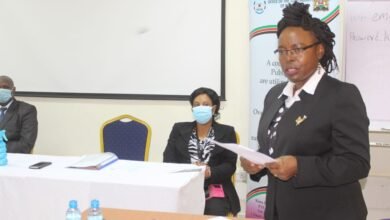
Senegal is expected to recommit to a €2.5 billion ($2.67 billion) Just Energy Transition Partnership (JETP) at the COP29 climate summit in Azerbaijan this month, according to a key funder.
The program, aimed at reducing Senegal’s reliance on fossil fuels, has experienced delays due to a change in government earlier this year.
Negotiations for the JETP—an agreement involving some of the world’s wealthiest nations—had slowed after Senegal’s new government took office in March. Remy Rioux, CEO of France’s state development bank, confirmed that a renewed commitment is expected, potentially through an official investment plan.
Initially introduced by former President Macky Sall in June 2023, the program faced uncertainty following his party’s loss in the March elections, with Bassirou Diomaye Faye taking over as president. This political shift raised questions about the future of the JETP, along with major oil and gas ventures planned by companies such as BP Plc and Kosmos Energy Ltd.
While the Senegalese presidency has declined to comment, Rioux indicated that Faye may formally support the initiative if his party, led by Prime Minister Ousmane Sonko, secures a majority in the parliamentary elections on November 17. Sonko’s Pastef party is widely expected to gain enough seats to solidify Faye’s position.
“If Prime Minister Sonko achieves a parliamentary majority, an investment plan could be announced shortly after the election,” said Rioux in an interview from Johannesburg. The investment plan is set to outline how Senegal intends to increase renewable energy’s share within its power grid.
If finalized, the agreement would facilitate funding from France, Germany, the European Union, the UK, and Canada over the next five years. This initiative mirrors similar partnerships established with other developing nations to transition away from fossil fuels.
For example, South Africa initiated a $9.3 billion energy transition program in 2021 and has already received €700 million from France’s AFD, alongside loans from Germany’s KfW bank. Indonesia and Vietnam have also launched JETP programs valued at $20 billion and $15.5 billion, respectively.
This initiative by some of the most industrialized countries seeks to support emerging economies in reducing greenhouse gas emissions through renewable energy investments.
Currently, Senegal generates most of its electricity by burning oil and gas, while South Africa, Indonesia, and Vietnam heavily rely on coal.






Pretty great post. I just stumbled upon your weblog and wanted to mehtion that I have truly enjoyed surfing
around your blog posts. In any case I’ll be subscribing on your
rsss feed annd I’m hoping you wrote again very soon! https://Wp.Nootheme.com/jobmonster/dummy2/companies/22bit-22bit-casino42/